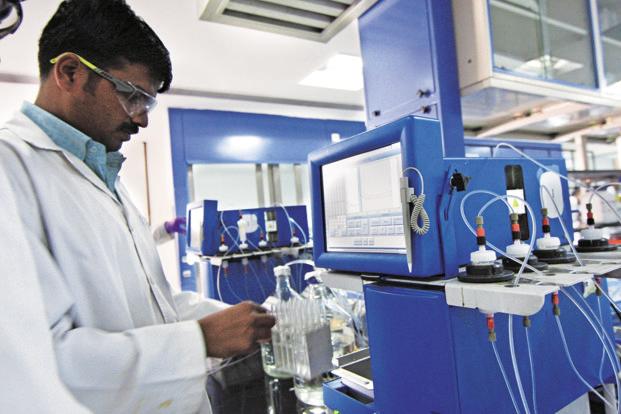New Delhi: The Drug Controller General of India (DCGI) is preparing a plan to ensure that drug testing laboratories meet the prescribed good laboratories practice (GLP) norms.
“Surprise inspections” of all accredited laboratories is in the offing, according to a senior official in the drug controller’s office. “All private drugs and cosmetics testing facilities in India will have to undergo auditing, addressing all elements of quality by the government,” said the official cited above, requesting anonymity.
Although every drug manufacturer has in-house testing facilities, the public drug testing laboratories approved under Drugs and Cosmetics Rules cater to the testing requirements of manufacturing units that lack specialized facilities. There are about 150-200 such drug testing laboratories in India that test drugs, cosmetics and other pharmaceutical ingredients manufactured.
The manufacturing permits of established drugs (already in market for four years) is given by the state drug administrators. This will be the first time when a central team will jointly inspect these facilities along with the state machinery. “These facilities are inspected every five years at the time of grant of licence to them by state regulators. This is the first time that a surprise inspection will be done comprising a team from the Centre,” added the official.
The laboratories for testing drugs, cosmetics must be accredited by the National Accreditation Board for Testing and Calibration Laboratories (NABL), to be deemed technically competent.
The moves follows instructions from the Prime Minister’s Office (PMO) in the backdrop of quality concerns raised at various forums, including the recent presentation to the PMO by the union health ministry on generic medicines and the draft pharmaceutical policy by the department of pharmaceuticals that said quality assurance of indigenously manufactured drugs is an area of concern.
“While the drugs that get exported have a stringent quality assurance system put in place and insisted upon by the importing companies’ internal requirements, concerns have been raised on the quality of surveillance of the indigenously manufactured drugs for the domestic market,” stated the draft policy. It added that many manufacturing units are not compliant with the World Health Organization (WHO) good manufacturing practices (GMP) or the GLP.
“There are not enough NABL-accredited for conducting frequent and regular tests. The record of regular audit of these labs itself is also not very encouraging. All these severely and in combination give rise to the grave quality concerns in pharmaceutical industry,” the report added.
The GLP principles, which set the quality standards for the organization to test facilities, cover all aspects of a laboratory’s daily activity, such as the layout of testing and storage areas to prevent contamination, cleaning and calibration of equipment, handling of test animals, and recording of test results. The GLP principles thereby help ensure that studies submitted to regulatory authorities to notify or register chemicals are of sufficient quality and can be verified. The move gains significance as India proposes to bring down the proportion of substandard drugs to 2% over the next three years, to match global standards.
During its recent survey, the drug regulator found well-known drug manufacturers failing quality tests. In the survey, samples tested from top drug companies were found not to be of standard quality.
The survey was carried out through the national institute of biologicals. When contacted, various companies running drugs testing units including Biocon Ltd, Delhi-based Arbo Pharmaceuticals Ltd, Bengaluru-based Sriram Institute of Industrial Research and Micro Laboratories Ltd, didn’t reply to queries sent by Mint till the time of going to the press. To crack down on false documentation, laboratories—as per the officials—will face regulatory action for non-compliance.
“GLPs are the regulatory standards that define the minimum requirements for planning, conducting and reporting safety studies. We will take action as per the rules if the units are not found to be adhering to the norms,” said another official.
D.G. Shah, secretary general, Indian Pharmaceutical Alliance (IPA), said the exercise should be done more regularly. “The PMO has been putting greater emphasis on improving both testing and quality of medicines. This exercise will not only improve the quality of medicines, but also bring uniformity in the standards across the country. It’s good that they have started to do it but it should be done on a regular basis.”
India is a signatory to quality standards set by the Organization for Economic Cooperation and Development (OECD) and National GLP compliance monitoring authority. Established in the year 2002 by the department of science and technology provides GLP compliance certificates to test facilities involved in conducting safety studies on chemicals, pharmaceuticals, veterinary drugs, cosmetic products, pesticides, food products, feed additives etc.
[“Source-livemint”]

